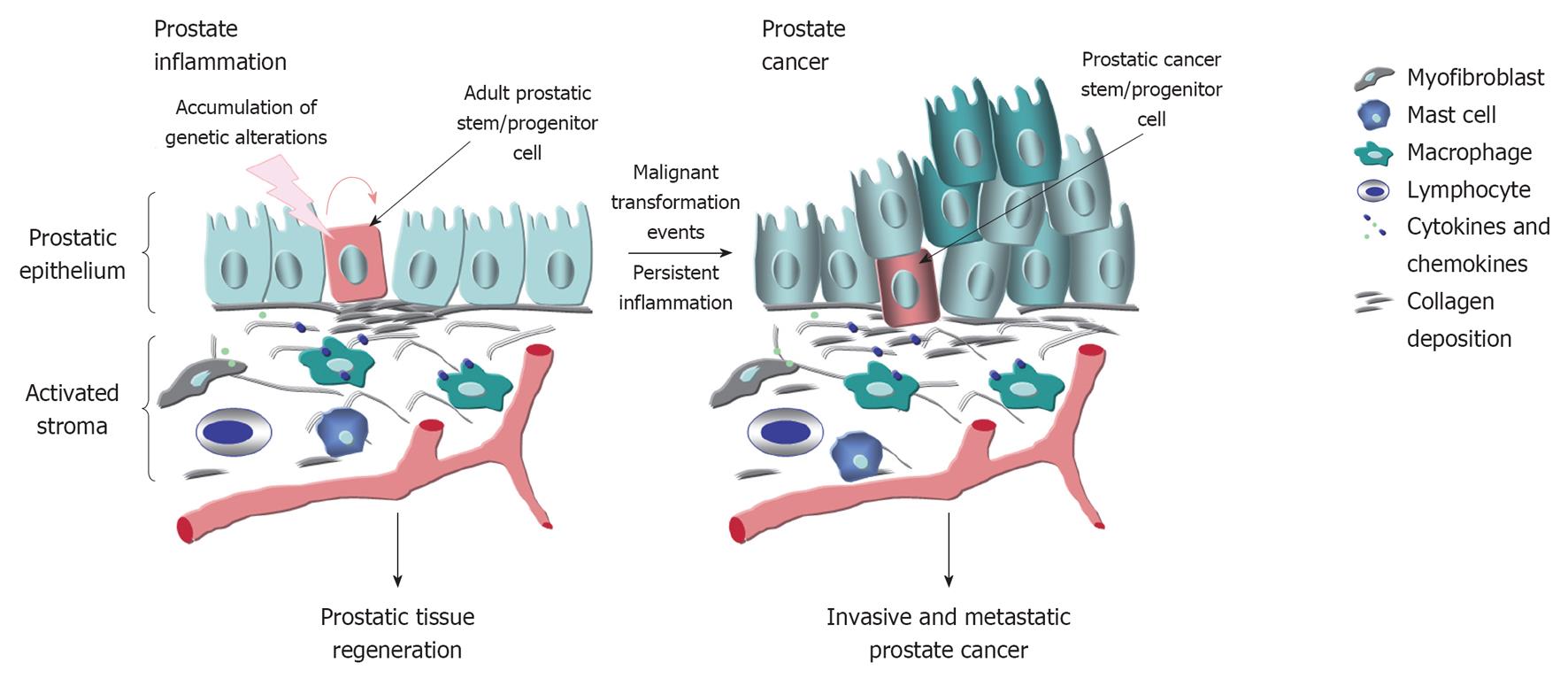Copyright
©2013 Baishideng.
World J Clin Oncol. Feb 10, 2013; 4(1): 4-13
Published online Feb 10, 2013. doi: 10.5306/wjco.v4.i1.4
Published online Feb 10, 2013. doi: 10.5306/wjco.v4.i1.4
Figure 2 Potential model of the interconnections between the persistent activation of prostate inflammatory response and prostate cancer etiopathogenesis and progression.
The inflammatory response which involves the changes in the reactive stroma, including the differentiation of fibroblasts into myofibroblasts and enhanced number of immune cells such mast cells, macrophages and T and B lymphocytes that can release different proinflammatory cytokines and chemokines is illustrated. The transient induction of inflammation may promote the repair of the damaged prostatic tissue under homeostatic conditions. The persistent activation of inflammatory response combined with the accumulation of genetic alterations in prostatic stem/progenitor cells and their progenies which can contribute to the induction of foci of proliferative glandular epithelium, angiogenesis and prostate cancer development and progression are also indicated.
- Citation: Mimeault M, Batra SK. Development of animal models underlining mechanistic connections between prostate inflammation and cancer. World J Clin Oncol 2013; 4(1): 4-13
- URL: https://www.wjgnet.com/2218-4333/full/v4/i1/4.htm
- DOI: https://dx.doi.org/10.5306/wjco.v4.i1.4









